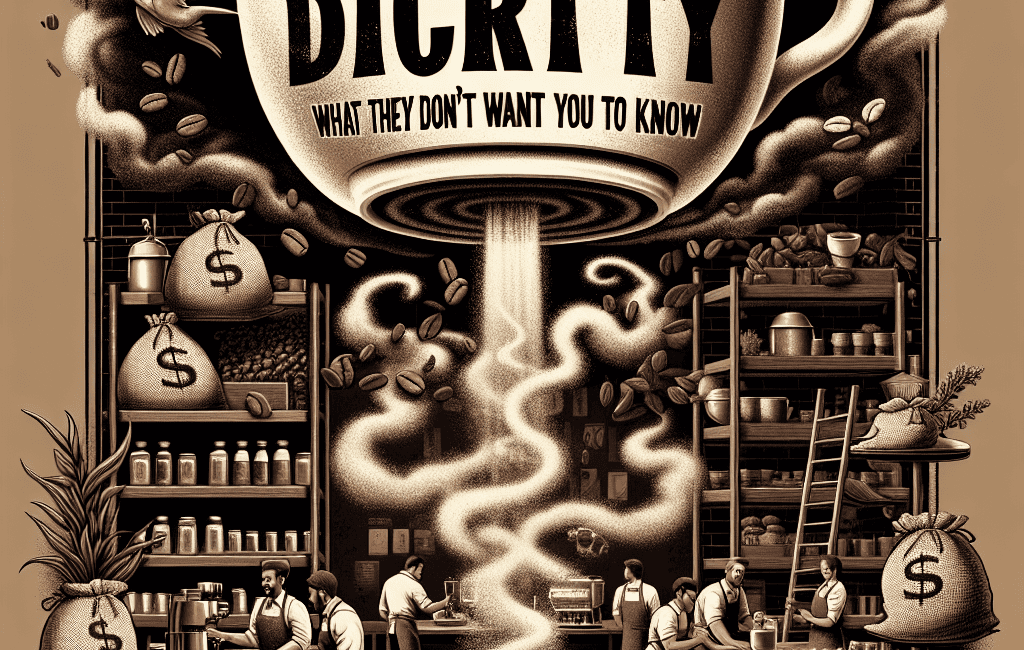
The Coffee Industry’s Dirty Secrets: What They Don’t Want You to Know
Introduction
Coffee is one of the most beloved beverages in the world, with millions of people starting their day with a cup of joe. However, beneath the rich aroma and comforting warmth lies a multitude of issues that plague the coffee industry. From environmental destruction to labor exploitation, the truth about coffee is more complex than you might think. In this blog post, we will uncover the dirty secrets of the coffee industry that many companies would prefer you not know.
1. The Dark Side of Coffee Production
The coffee production process is often romanticized, but the reality is far from picturesque. Here are some of the primary issues:
- Child Labor: In several coffee-growing regions, children are employed on plantations, often under hazardous conditions. Families may rely on the income generated by their children, perpetuating a cycle of poverty.
- Exploitation of Workers: Many coffee farmers receive less than fair compensation for their labor. Large corporations may pay low prices for coffee beans, squeezing farmers and forcing them to cut corners.
- Unsafe Working Conditions: Farmers and laborers often work in hazardous conditions, with exposure to harmful pesticides and limited access to protective gear.
2. Environmental Concerns
The environmental impact of coffee production is another aspect that’s often overlooked:
- Deforestation: To create space for coffee plantations, large areas of rainforest are cut down, leading to loss of biodiversity and disruption of ecosystems.
- Pesticide Use: The extensive use of chemicals in coffee farming can pollute local water supplies, harming both wildlife and human populations.
- Climate Change: Coffee is particularly sensitive to changes in climate, and rising temperatures threaten to reduce suitable land for coffee cultivation.
3. The Fair Trade Movement
In response to these issues, the Fair Trade movement emerged as a way to promote ethical sourcing. While Fair Trade certification can improve conditions for farmers, it’s not without its criticisms:
- Limited Scope: Not all coffee is Fair Trade certified, meaning many farmers still operate under exploitative conditions.
- High Costs: For some small-scale farmers, meeting Fair Trade standards can be a financial burden, making it difficult to participate.
- Market Saturation: As the demand for Fair Trade coffee increases, some companies may exploit the label without adhering to ethical practices.
4. The Role of Corporate Giants
Many of the big players in the coffee industry prioritize profit over ethical practices. Here’s how:
- Price Manipulation: Large companies often engage in price manipulation, purchasing beans at significantly lower rates than what’s fair, squeezing farmers’ profit margins.
- Greenwashing: Some corporations market themselves as environmentally friendly while continuing harmful practices, misinforming consumers about their true impact.
- Monoculture Farming: The push for high yields leads to monoculture farming, which depletes soil nutrients and reduces biodiversity.
5. Consumer Awareness and Responsibility
As consumers, we hold the power to demand change. Here are some ways you can make a difference:
- Research Your Brands: Before purchasing coffee, research the brands to understand their sourcing practices and labor conditions.
- Choose Local Roasters: Support local businesses that prioritize ethical sourcing and sustainable practices.
- Opt for Certifications: Look for certifications such as Fair Trade, Rainforest Alliance, or Direct Trade to ensure your coffee is ethically sourced.
6. The Future of Coffee
As awareness grows, the coffee industry is beginning to respond. Innovations and movements aimed at ethical practices are on the rise:
- Direct Trade: This model connects consumers directly to farmers, often resulting in better prices for producers and fresher coffee for consumers.
- Organic Coffee: Organic farming practices reduce chemical use, promoting healthier ecosystems and communities.
- Transparency Initiatives: Some companies are pledging to be more transparent about their supply chains, allowing consumers to make informed choices.


